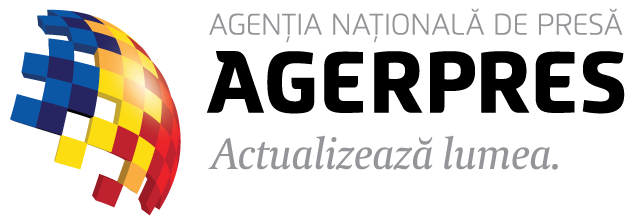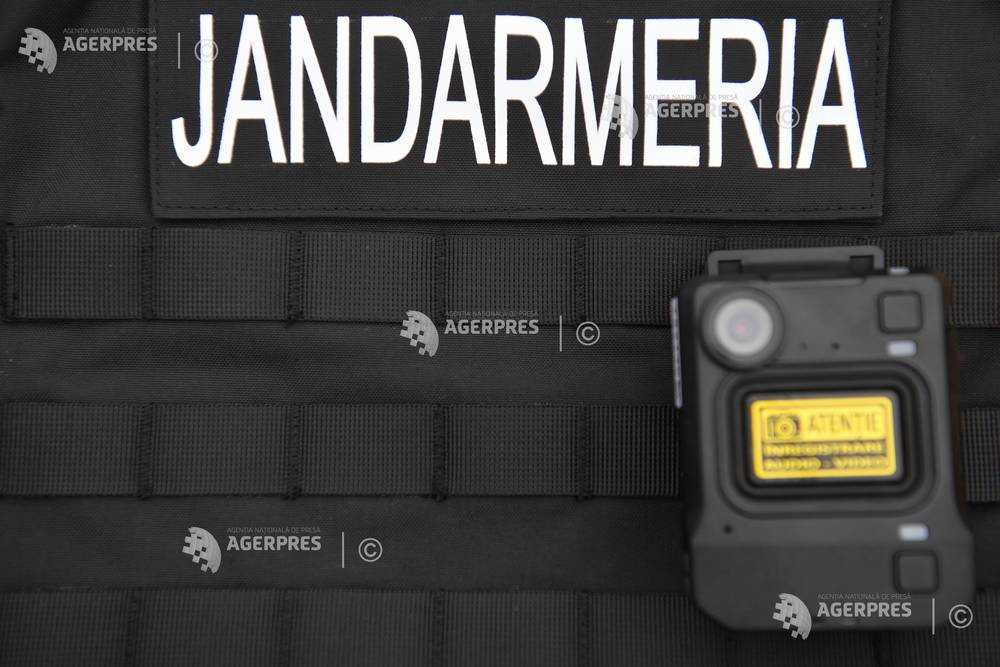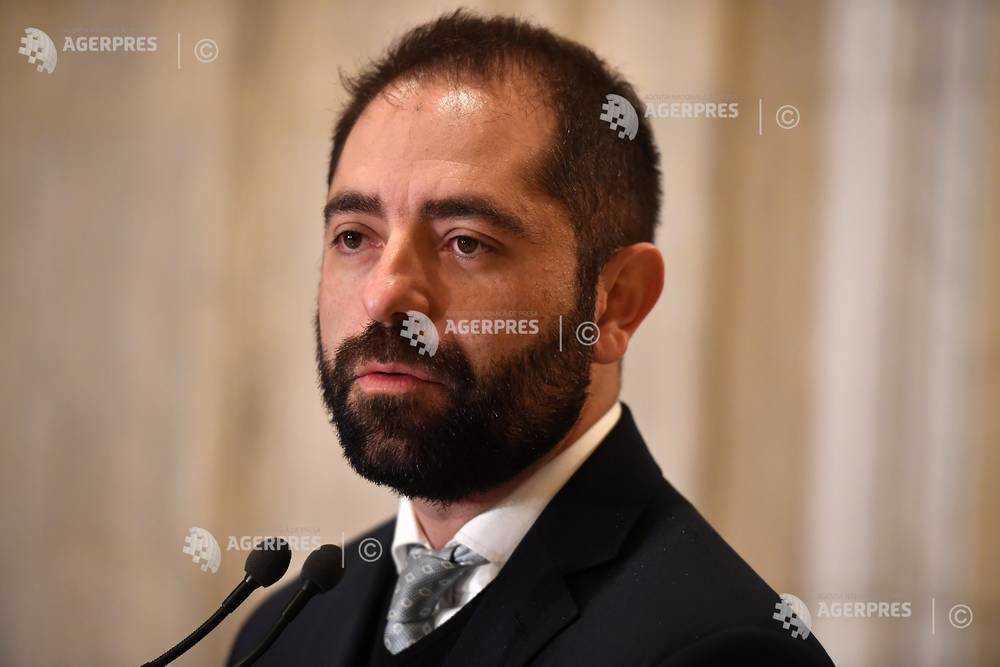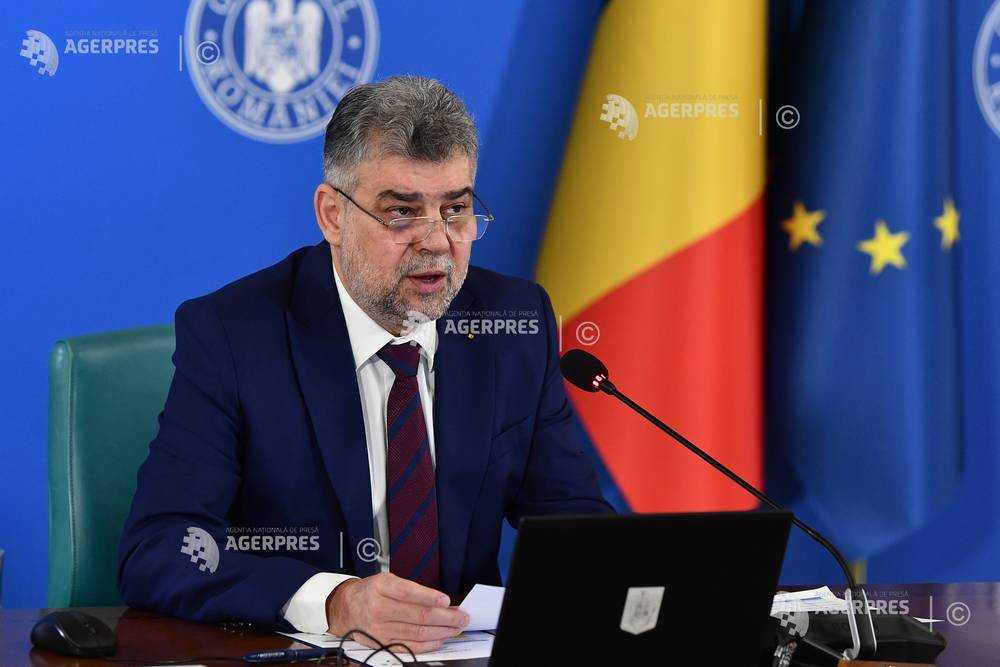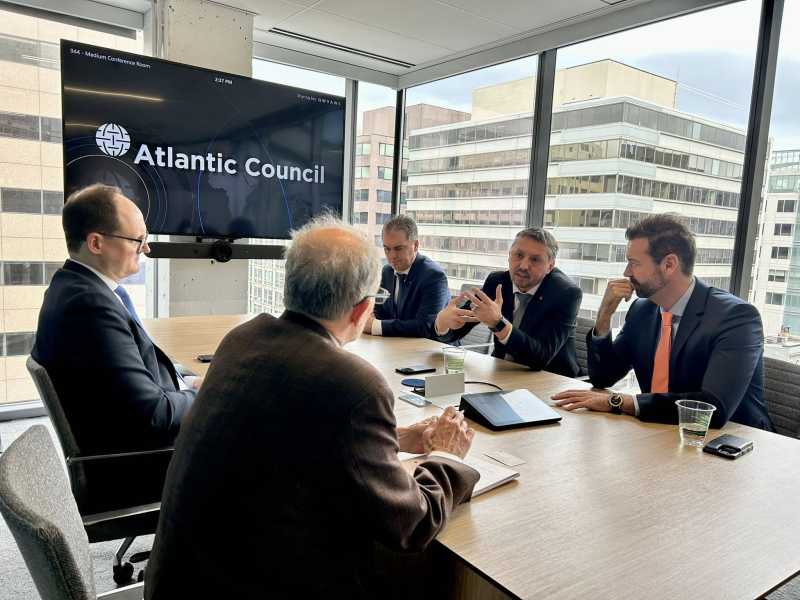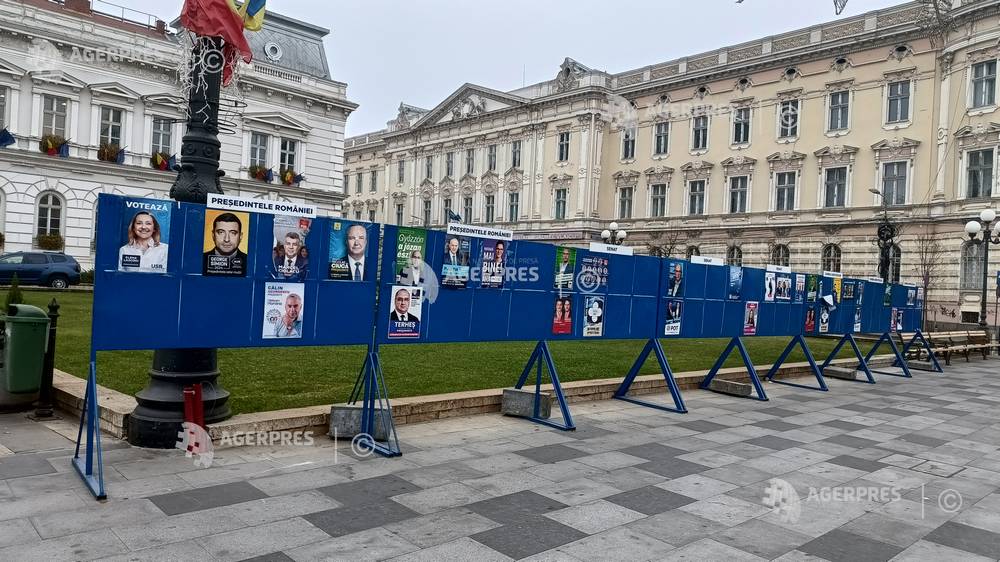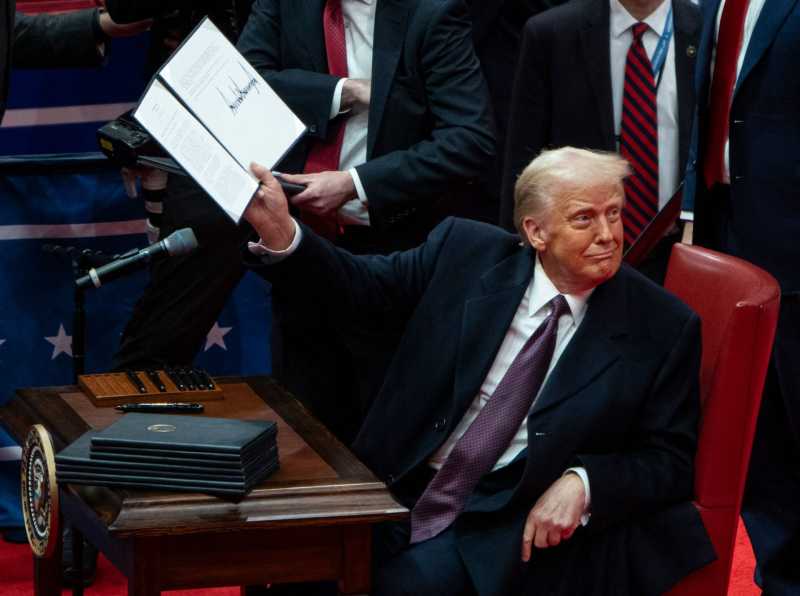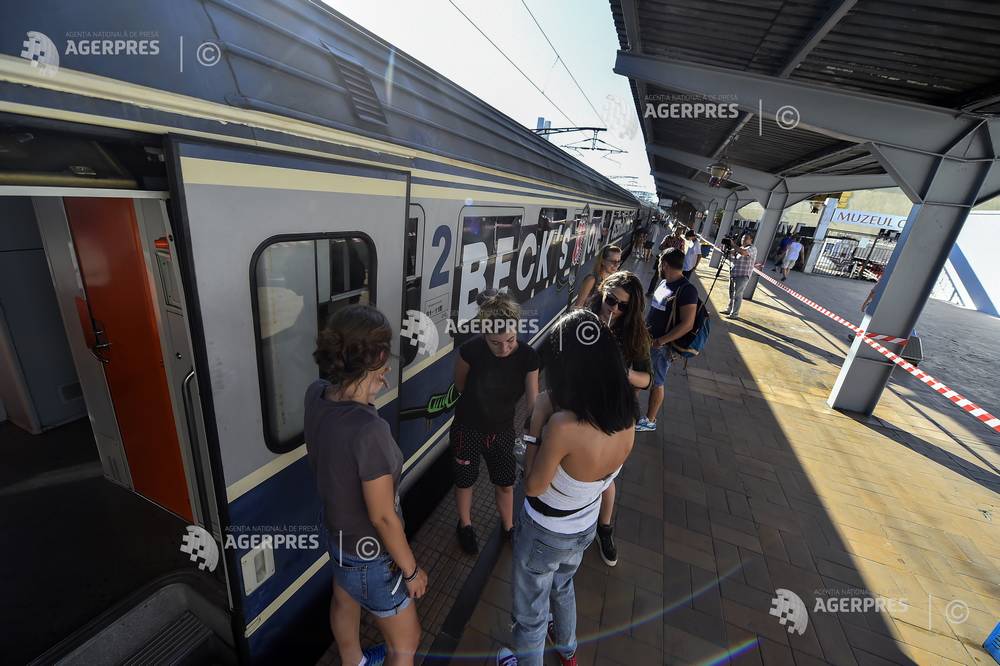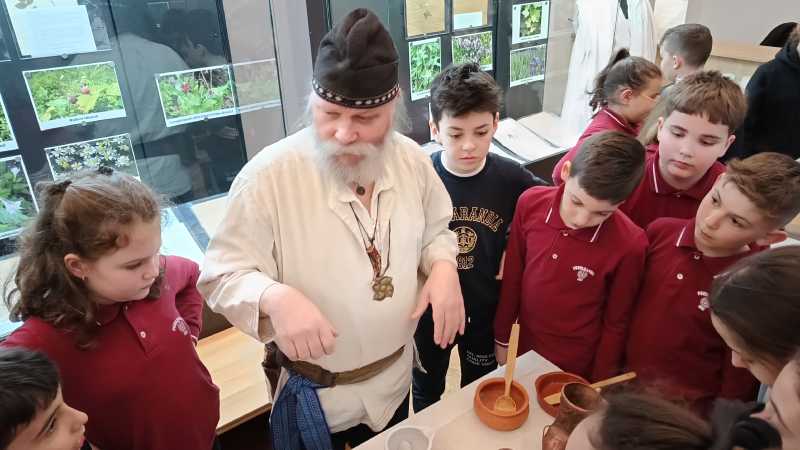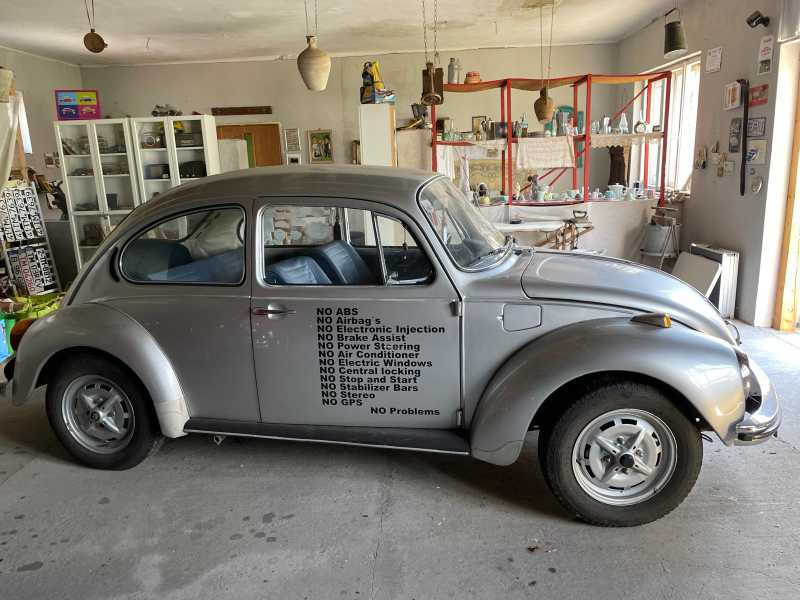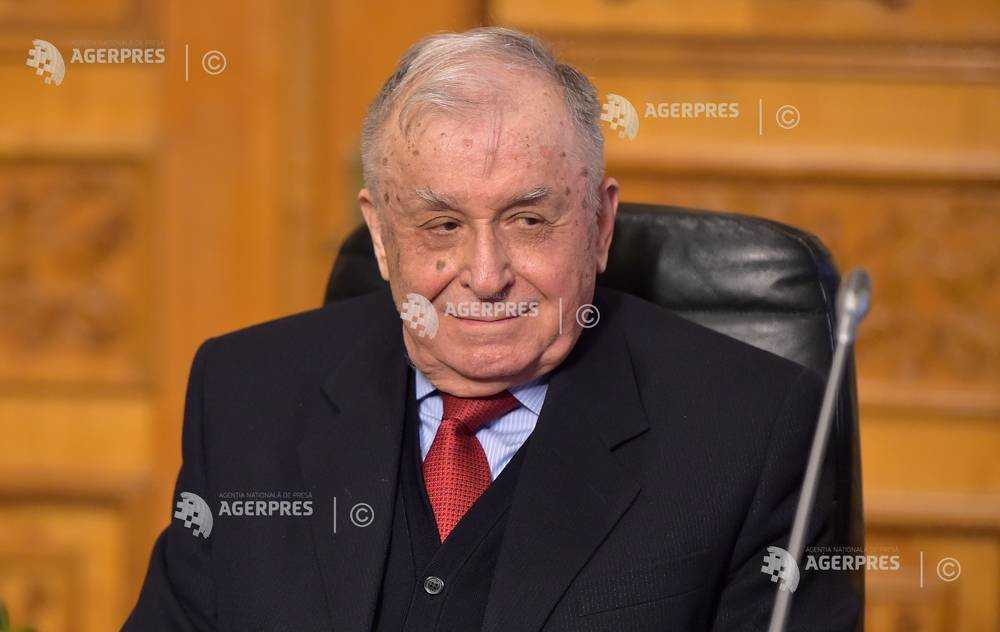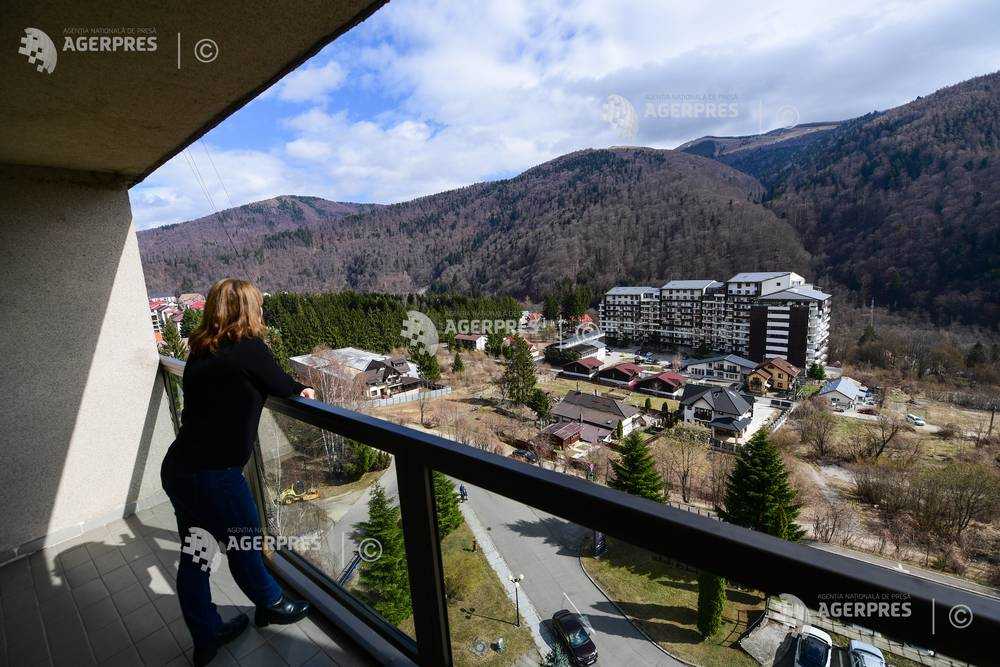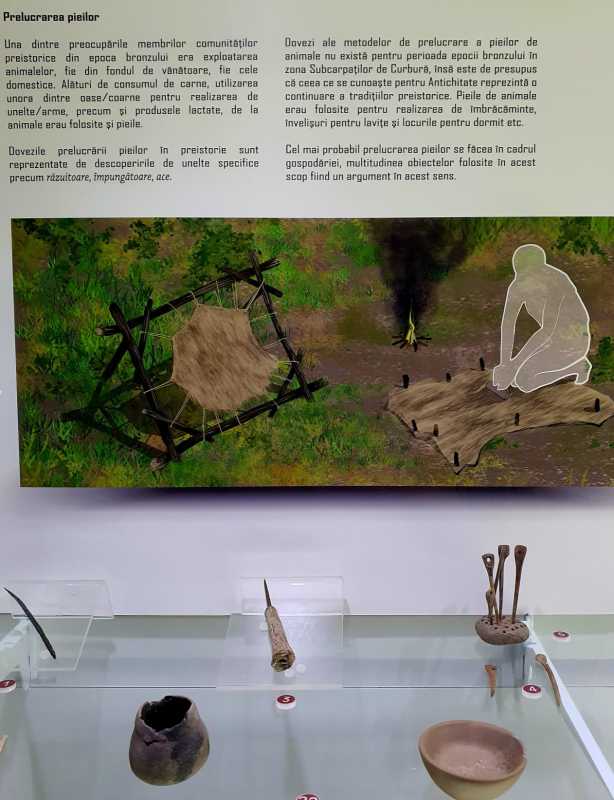ROMANIA-NATO-20YEARS/ INTERVIEW Mircea Geoana: Romania has a vocation for playing a multiregional part in NATO
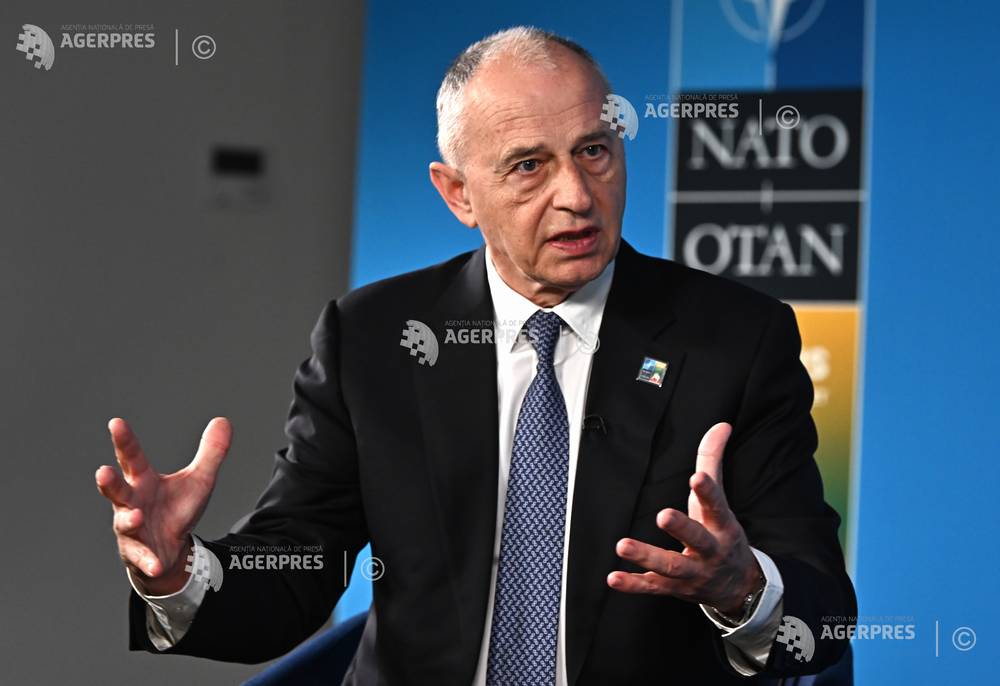
Romania's history in NATO is an odyssey spanning several decades and the country has a vocation for playing a multiregional part inside the North Atlantic Alliance, NATO Deputy Secretary General Mircea Geoana recently said in an interview with AGERPRES.
He recalls having participated in all stages of preparation for Romania's accession to NATO and talks about Romania's weaknesses and strengths before accession, two decades ago.
"Our dictatorship was more brutal and protracted, the transition was much more difficult to make, the miners storming Bucharest City, reputation problems, all this made Romania have a slightly slower start, but Romania knew how to catch up," he says.
Geoana also talks about steps Romania should take in order to evolve within the Alliance. He mentions investment in defence and the allocation of at least 2% of GDP for defence spending.
"Many countries in our region - Poland, the Czech Republic, Bulgaria - have private defence companies that are currently growing exponentially. I think we still have to build and recover precious time that we did not use well, but it is not a strictly Romanian thing. There are many Western European countries that thought they could collect peace dividends and that only America should invest in security and that in Europe you can neglect national security. That illusion is over and all allies plan to have at least 2% of GDP for defence spending, if not now, at least in the nearest time horizon."
He adds that Romania has a vocation for playing a multiregional part inside the North Atlantic Alliance.
AGERPRES: When Romania joined NATO, you were its foreign minister. Can you tell the inside story, because the story of Romania's accession to NATO came a few years after the wars in the former Yugoslavia and came at a time when the eastern flank was gaining more interest from the Allies? How did you see that moment then?
Mircea Geoana: I have the privilege to be, I believe, the only Romanian leader who participated in all stages of preparation for Romania's accession, accession and affirmation in NATO, as is the case today. The journey to NATO obviously began via Washington, where, as a young ambassador, I made this mission my main mission. After the failure to accept Romania in the first wave of enlargement, we managed to convince today's American ally to launch the Romanian American Strategic Partnership.
We, those of my generation at least, remember President Clinton's visit to Bucharest, the University Square, the launch of the Strategic Partnership, which becomes more robust and diversified as the years went by. As a foreign minister, I also had the chance of the Romanian Chairmanship of the OSCE. It was, if you will, a test of Romania's capability, as a diplomat, as an international actor, to play complex parts. And I think that successful presidency dispelled the last doubts or concerns about Romania's ability to behave as a presumptive and capable NATO ally. I do not want to underestimate the role of the Romanian military, of the Romanian intelligence services, of the men and women who showed that in Iraq, in Bosnia, and in Afghanistan. Speaking of Afghanistan, September 11 clearly changed the global paradigm. It was a massive shock for America. We activated, for the first time in NATO's history, Article 5 in support of the American ally.
And if today we see at Mihail Kogalniceanu a first-rate Romanian military base - which will obviously also be used by NATO - it is in a logic of the fact that Romania's geostrategic position became so valuable, a multiregional role that Romania, I am convinced, will also play in the future. In short, an odyssey spanning several decades. I think that reflecting on what happened to Romania 20 years on, I would say that it was an absolutely historic event for us. Never in the history of the Romanian nation national security was as protected as it is now by the strongest alliance in the world. The entire West is our ally, but, as we can see, the international situation remains very complicated - war in Ukraine triggered by Russia, increasing instability in the Middle East, China is becoming more offensive and active, not only in Asia and the Pacific, but internationally, technological evolution changes the paradigm in the economic area, but also in the military area.
I can say, in summary, thank God that we are in NATO, because I would not want to think about what would have happened to our country in this extremely complicated, extremely dangerous, extremely intense geopolitical moment, if we had not been part of NATO and the EU - because if we had not joined NATO, certainly, at least at that time, I do not think that the European Union would have ventured into more exposed geographies, as is the case of Romania, Bulgaria or the Baltic countries that were part of the same wave of enlargement as Romania.
AGERPRES: Because you took part in all these stages that led to Romania's accession to NATO, what was the greatest reluctance on the part of the allies related to Romania's accession to NATO and what were Romania's strengths?
Mircea Geoana: I think the general reluctance came for two reasons: the fact that the transition from communism to post-communism in Romania was somewhat more hesitant compared to the countries of Central Europe - [Lech] Walesa, Vaclav Havel, very, very important leaders. Our dictatorship was more brutal and protracted, the transition was much more difficult to make, the miners storming Bucharest City, reputation problems, all this made Romania have a slightly slower start, but Romania knew how to catch up. And when the entire political class and the entire Romanian people united behind the idea of joining NATO and the EU, Romania was able to sprint and I can say today and I am, if you will, the direct reflection of Romania's influence and respect in the Alliance. I am holding such an important position at the top of the North Atlantic Alliance. Romania had a more hesitant start, but I think it's proof that when Romanian leaders - and on these issues they were all united - regardless of political differences, regardless of the personalities of successive presidents, of successive governments - and there were few - this guideline towards the West, Euro-Atlantic integration remained a constant and I am convinced that it will remain a constant for many decades and, why not, centuries. Because Romania needs peace and stability for a long, long time to come, because we have to rebuild and build in Romania a stronger economy, a better democracy, with less poverty, less corruption. And these things cannot be achieved if you do not have a sound foundation, and the foundation is NATO and national security.
AGERPRES: Can you talk about how Romania's role has grown at NATO level, between accession and now, when Romania itself has a border war? How did Romania gain credibility? How did it win this role, including the role of the eastern Flank, which is becoming increasingly important?
Mircea Geoana: The entire modern history of Romania is marked by geopolitical earthquakes: the Crimean War of 1853-1856, World War I, World War II, the fall of communism. Each time, Romania was directly affected and knew how to take advantage of these geopolitical earthquakes every time. That is why we can say that the wars in the former Yugoslavia showed the need for a Romania - the largest and most stable country in the region - September 11, we talked about it, now the war in Ukraine. In a way, its geostrategic location made Romania very important to the West. There were also domestic efforts, we must say so. Coming back to our military, to our veterans in war zones. They did exceptional work for us. And when you show not only that you are valuable as strategic real estate, as a strategic location, but you are also able and willing to make an effort alongside your allies, then obviously your reputation grows.
Where what was supposed to be done has not happened and we are only now trying to catch up in Romania and in many countries in Europe is this chronic under-investment in our armed forces and in our defence capabilities - post-Soviet equipment, working conditions and remuneration for our soldiers. And even if a little more is invested now, we still see the need to continue investing and I hope that through these investment in national defence, along with NATO's defence and deterrence plans, we will also see a renaissance of the military industry in Romania.
Many countries in our region - Poland, the Czech Republic, Bulgaria - have private defence companies that are currently growing exponentially. I think we still have to build and recover precious time that we did not use well, but it is not a strictly Romanian thing. There are many Western European countries that thought they could collect peace dividends and that only America should invest in security and that in Europe you can neglect national security. That illusion is over and all allies plan to have at least 2% of GDP for defence, if not now, at least as soon as possible.
AGERPRES: In previous interviews you talked about the need to increase Romania's NATO profile. What do you think Romania should do to be even more present at NATO level?
Mircea Geoana: In NATO, Romania enjoys respect and influence. That is obvious. I see here, from the NATO leadership, how many Romanian women and men make an extremely good impression, either as our employees of NATO, or in military uniform, or in the intelligence services. Our diplomats are highly praised. At NATO, Romania is doing well. I hope that in other areas, in the EU, in the OECD, at the UN - where, unfortunately, it has not been on the Security Council for 20 years, as a non-permanent member - we can evolve. What Romania does very well at NATO, where I would make a personal observation: I think Romania has a multiregional vocation. Obviously, the Black Sea remains a subject of concern and an extremely complex strategic vector. For that reason, NATO considers the Black Sea area, as well as the Western Balkans, areas of strategic importance to NATO. But I think Romania has a vocation for playing a multiregional part, beyond the Black Sea, in Central Europe, on the eastern flank, so much modified by the accession of Sweden and Finland, in the Middle East because protection, stability, and also economic might is needed, with areas that can be useful. If I were to make a strategic recommendation to Romania: invest in what we want to do well, invest in the Romanian armed forces, in the Romanian diplomacy, in the Romanian economy. Because if you don't have, after all, economic strength, you have 2.5% of GDP out of a small GDP. If you have a GDP that is let's say double, that 2.5% is suddenly more money.
My recommendation is to strengthen ourselves internally and to be able to play the natural role that Romania has. It is a big country, it is a consistent country, it is a coherent country, from the point of view of foreign policy, and that is why I think the next, more ambitious stage is to take on role of 360 degrees, if you will, on all azimuths around the geography so valuable that Romania has and that it makes available to NATO.
AGERPRES: Today, a NATO ministerial meeting started. Will there be an anniversary moment related to the celebration of 20 years of several countries joining NATO? What are the priorities of this ministerial meeting related to Romania?
Mircea Geoana: The main ceremony will be related to the 75th anniversary of NATO, on April 4. Tomorrow we will have an official moment. There will also be a few moments when the secretary general, I, our military commanders will mark the moment. All the foreign ministers, with the secretary general, with the US secretary of state Tony Blinken, with all the ministers, including Minister Luminita Odobescu, will have an absolutely historic moment, an absolutely epochal moment. Obviously, each of the allies that celebrated 15 years, 25 years, 20 years, 10 years, now the Balkans, each has a specific moment, as is the case of Romania - 20 years.
At the ministerial meeting, we will focus on our big anniversary, and the foreign ministers will prepare the anniversary summit in Washington on July 9-11. We have a lot, a lot of work to do in continuing to support Ukraine at a complex moment in the war, in terms of supporting our vulnerable partners - the Republic of Moldova, Georgia, Bosnia, the Western Balkans - our policy of partnerships with the European Union and with our partners in the Indo-Pacific area- we will have the foreign ministers of these partners with us - and obviously, Directorate South. We were talking about 360 degrees for Romania. And NATO thinks 360 degrees logically. It's very, very important.
From a security point of view, which is central to NATO's defence and deterrence mission, we will continue to implement defence and deterrence plans. This is also good for Romania and for the Black Sea area, because we have a complex situation in the Black Sea area and I hope that, also from the point of view of our societal resilience, economic, cyber security, hybrid war, the fight against disinformation that we have to face from Russia and other actors in a very electoral year for many NATO countries or NATO partners - they will also be on the agenda of our ministers. We will celebrate this formidable 75th anniversary of the most successful alliance in human history. That's no small feat. I am extremely proud to be at the top of NATO in these moments, and as a Romanian, I think this element of pride and respect is also a kind of recognition of the fact that if you do not have your security assured, you cannot build anything. That is why NATO is here to remain as vigilant, as strong, as determined, not just for 75 years, but for many decades to come. AGERPRES (RO - author: Oana Ghita, editor: Florentina Peia; EN - author: Corneliu-Aurelian Colceriu)
The content of the www.agerpres.ro website has the exclusive purpose of public informing.
All the information published on this website by AGERPRES is protected by relevant legal dispositions.
It is forbidden to copy, reproduce, recompile, decompile, distribute, publish, display, modify, create derived components or products or full services, as well as any exploitation of the site's content.
Details in the section Terms of Use. If you are interested in picking up AGERPRES news items, please contact the Marketing Department – [email protected].
The use of the Comments section entails your obligation to respect the AGERPRES terms and conditions in regards to the publishing of comments on the www.agerpres.ro.
Other news in category
Civic organisations ask authorities, parliamentarians and presidential candidates firm pro-European stance
The civic organisations that launched 'Manifest pentru Europa' ('Manifesto for Europe') in March have sent a document to authorities, parliamentarians and presidential candidates, requesting a firm pro-European stance and the commitment to concrete measures to protect Romania's Euro-Atlantic future. 'The 29 civic organisations that laun
Gendarmerie Day/IntMin Predoiu: I am proud of the way you managed tense moments
Minister of interior Catalin Predoiu on Thursday voiced his appreciation for the activity of the Gendarmerie and the way in which these institutions know hot to manage tense moments that require the involvement of the law enforcement. He participated in the 175th anniversary since the establishment of the Romanian Gendarmerie. 'I was proud t
Burnete (Concordia): U.S. tarrifs impact to be seen in Romania in automotive industry, furniture or steel products
Romania's direct exports to the United States represent approximately 2% of the country's total exports, however, the indirect impact of the new tariffs imposed by the U.S. may be felt in sectors such as the automotive industry, furniture and wood products, steel and iron goods, rubber and rubber products, industrial equipment, and the food industry, which are part o
PM Ciolacu: We will protect Romanian companies from effects of trade war between America and Europe
Prime Minister Marcel Ciolacu on Thursday announced support measures for all industries affected by 'the effects of the new trade war of tariffs between America and Europe,' mentioning that there is trust in Romania from investors. 'We will protect Romanian companies with all available resources from the effects of the new trade war of customs tari
Education Minister David, discussions on research-innovation, transatlantic relations, competitiveness, on visit to the United States
Minister of Education,Daniel David, on a visit to the United States, had meetings with representatives of several organizations and institutions, including the International Monetary Fund, the Congressional Office for International Leadership (COIL), the Atlantic Council, as well as with representatives of the Romanian diaspora. According to the ministry's
PresidentialElection2025/Election campaign to start with 11 candidates running for president
The election campaign for the presidential election starts on Friday at 00:00 and ends May 3 at 7:00. For 30 days, the eleven candidates registered in the race for the Cotroceni Presidential Palace will try to convince the voters to vote for them on May 4. During the election campaign, only the following types of propaganda materials are allowed
EU braces for US President Donald Trump ‘liberation day' tariffs (enr)
Brussels, April 2 /Agerpres/ - Two of the world's most interconnected global economies are hurtling towards a collision with the US President preparing to unveil a raft of new tariffs on America's closest trading partners. No one on either side of the Atlantic knows what to expect. The European Union is bracing for impact as US President Donald Trump p
Almost 1,500 young people from Romania will have an opportunity to explore Europe
Bucharest, April 2 /Agerpres/ - As many as 1,485 young people from Romania will have an opportunity to explore Europe by train as part of the DiscoverEU initiative launched by the European Commission. The European Commission is offering 36,000 travel passes in this round. Qualifying are young people born between July 1, 2006 (included) and June 30, 2007 (inclu
Dacian remedies and preparations of ancient cures, new attractions at Museum of Natural Sciences Arad
The Dacian remedies and plants used by our ancestors for various treatments are presented in a unique exhibition at the Museum of Natural Sciences in Arad, in the coming months, and visitors will also have the opportunity to see preparations in the pharmaceutical practice thousands of years ago. The Arad Museum Complex has a herbarium with over 5,000 plants, s
Banat Brunch 2025, with theater, walks, rides in vintage cars, and sustainable gastronomy
Banat Brunch program, aimed at the tourist promotion of Timisoara and Arad counties by My Banat Association, is diversifying its summer edition this year with theater and readings for children, rides in vintage cars, in addition to local gastronomy. 'The gastronomic culture events aim to promote local resources and rural heritage by using local gastronomy
PM Ciolacu: Romania's accession to OECD, Schengen integration, PNRR completion - turning point in modern Romania development
Romania's accession to the Organisation for Economic Co-operation and Development (OECD), along with full integration into Schengen and the completion of the National Recovery and Resilience Plan (PNRR), marks a turning point for the development of modern Romania, said Prime Minister Marcel Ciolacu at the Cotroceni Palace on Wednesday, at the conference 'Romania and
Former president Ion Iliescu sent again to trial in the Mineriad file
Former president Ion Iliescu and former prime minister Petre Roman were sent to trial by the General Prosecutor's Office in the June 1990 Mineriad [miners' riot - editor's note] case, for committing crimes against humanity. In the same case, former deputy prime minister Gelu-Voican Voiculescu, former SRI (Romanian Intelligence Service) director Vir
Prahova County, tourist destination worth visiting both in summer and winter
Prahova County offers numerous experiences for both Romanian and foreign tourists, both in summer and winter, as it boasts 24 ski slopes, over 20 wineries, famous castles and locations with the highest number of sunny days per year or with waters as salty as the Dead Sea, even though the road to the mountains is often a nightmare due to traffic. According to A
Dozens of former human settlements discovered in meadow of Calmatui Creek where wind park is being built
Archaeologists of the Buzau County Museum have discovered 31 human settlements consisting of former dwellings with wooden frames filled with clay mixed with straw, dating from prehistoric times to the first millennium AD, and hundreds of artifacts on an area of about 3,000 hectares, where a wind farm is currently being built. Smeeni is one of the communes on w
European Parliament greenlights Lucian Romascanu's nomination as member of European Court of Auditors
The European Parliament, convened in a plenary session in Strasbourg, on Tuesday, greenlighted the nomination of Lucian Romascanu, nominated by the Romanian Government, as a member of the European Court of Auditors (ECA). The MEPs endorsed his appointment with 437 votes in favour, 128 against and 92 abstentions. The current mandate of the Romanian member of th
